How to encourage self-confidence and self-awareness in early childhood
- Social & Emotional,
- Parenting Tips
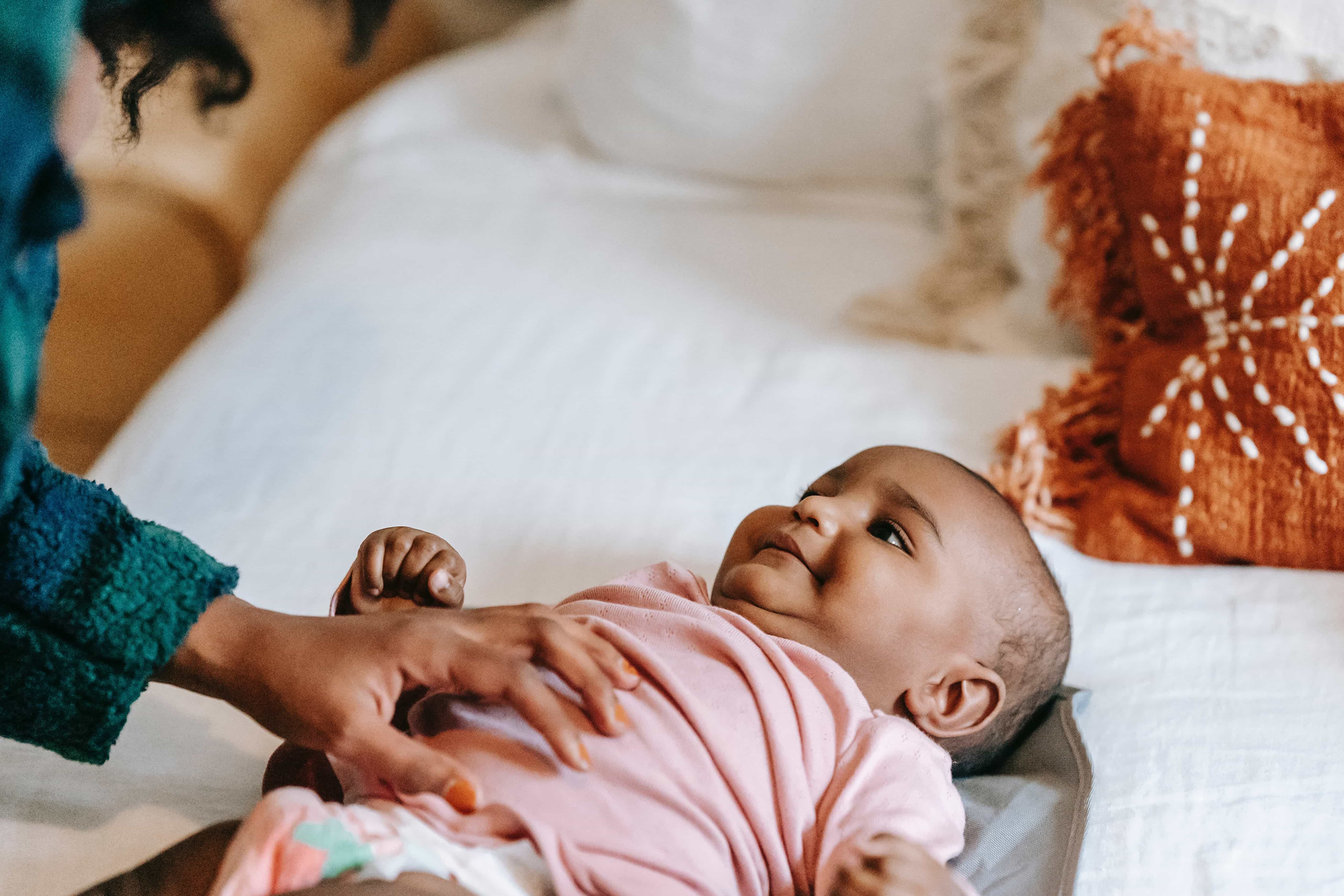
‘Once we believe in ourselves, we can risk curiosity, wonder, spontaneous delight or any other experience that reveals the human spirit’ - E.E. Cummings.
Who we are (personal), how we get along with others (social) and how we feel (emotional) are foundations that shape our lives. As we grow, we are continually developing our sense of self, as we weave a web of relationships and develop our understanding of ourself, others and the world.
Children’s self-image and self-awareness, their emotional understanding and the quality of their relationships affect their self-confidence, their potential to experience joy, to be curious, to wonder, and to face problems, bounce back with resilience and their ability to think and learn.
At My First Five Years, we recognise that personal, social and emotional skills can take many years to master as they require the development of the top part of the brain, which isn’t fully formed till early adulthood.
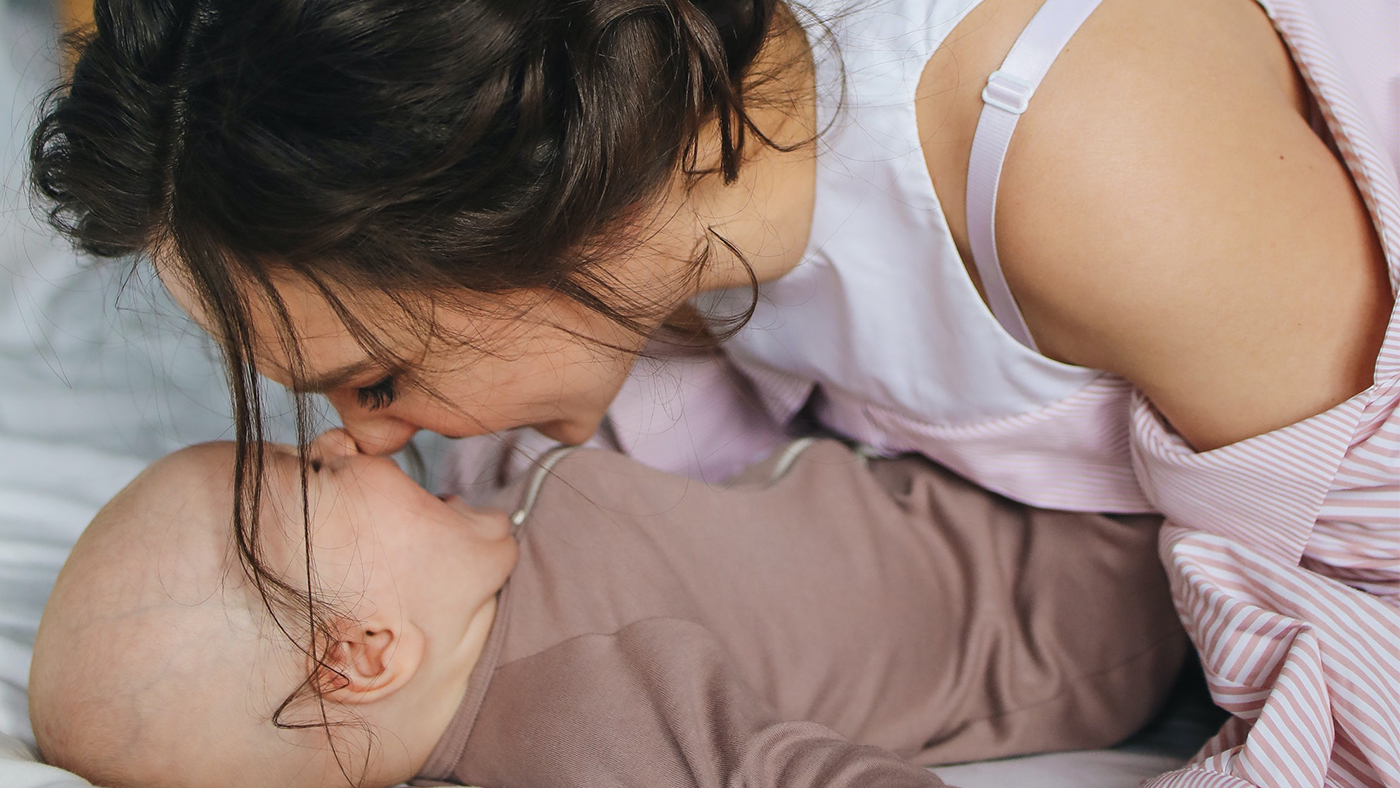
Developing self-confidence and self-awareness
The development of social skills includes developing an understanding of who you are and of other people. Your child will learn that they are separate to other people and objects and that other people have different views and feelings.
During their first five years, your child will develop social skills linked to their sense of self, their interactions with other children and their understanding of how other people behave. Whilst emphasis is often placed on ‘getting along with others’ or compromising when working as a group, and the skills of sharing or turn-taking, it is important your child holds on to their sense of self throughout this process. Sometimes your child may benefit from support to develop this self-confidence, for example, you may notice that your child may enjoy playing with a favourite toy but will relinquish this immediately when asked, or your child always takes the role of servant in the role play!
Self-confidence allows your child to ‘hold on to themselves’ and have confidence in their own opinions and views even if encountering others with opposing views. This might be through voicing a different opinion to others, negotiating with others to share an idea or persisting in demonstrating that their feelings are valid and should be accepted. Although we may be pleased to see our children exploring and testing these skills it can be difficult when their opinion differs from ours!
We all know that it can be difficult to think when we are lacking confidence or stressed and learning to recognise how you feel and to control these emotions is an important aspect of emotional development that impacts on learning. Children who find it difficult to regulate their emotions might find it difficult to focus and to learn.
Developing self-confidence and self-awareness enables children to develop healthy relationships, express their emotions and desires and become resilient, self-confident learners. It is good to know this is something that can be nurtured from birth.
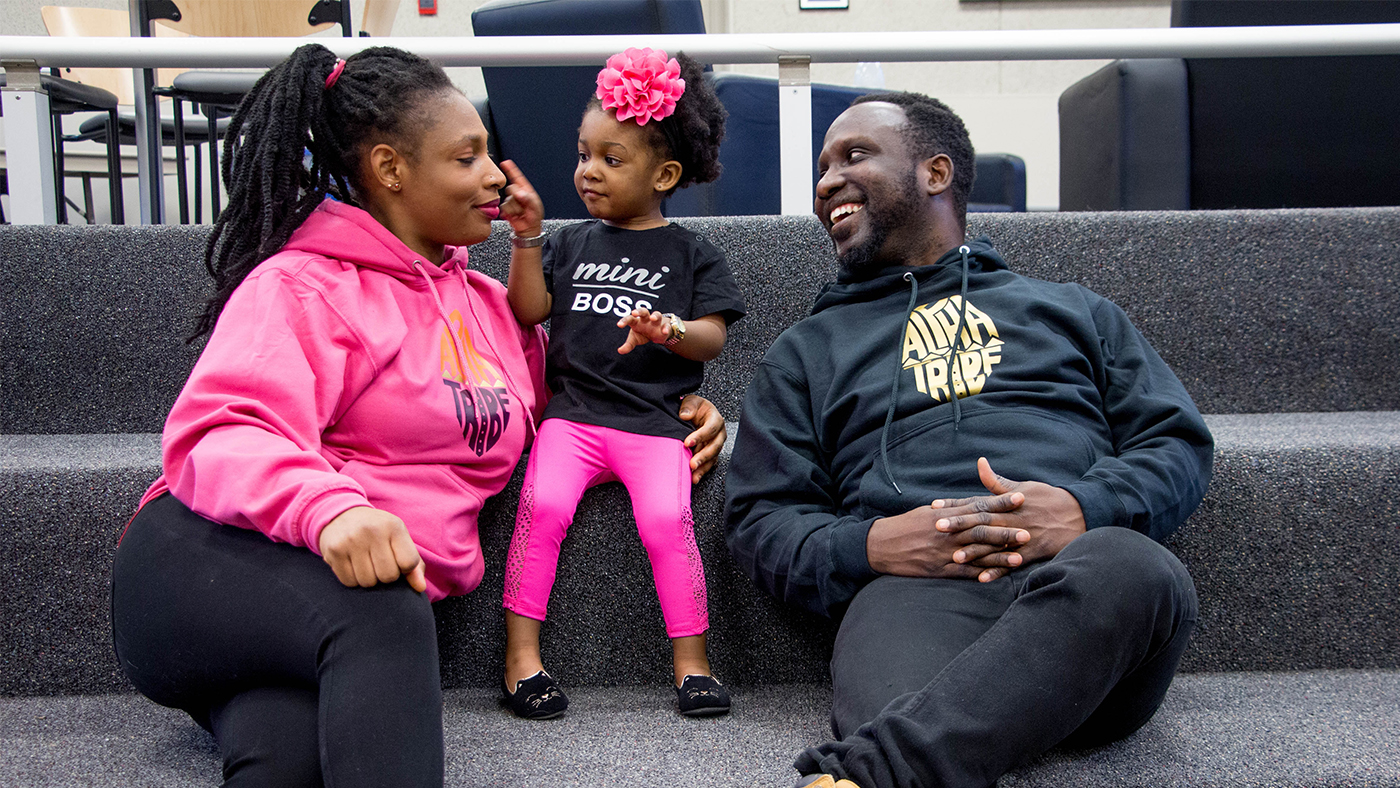
Self-confidence and self-awareness in babies
Your baby will begin to recognise that they are separate from others and that their actions can influence other people. You might notice them smiling, gurgling or moving to gain your attention. Being responsive to your baby’s displays of emotions and feelings shows them that these emotions are valid and important. This will lay strong foundations for self-confidence.
Older babies will begin to show more of a sense of self, and they will start to use pointing gestures and eye contact to share interests and excitement during play. Tuning into the things they are interested in and giving shared attention shows your child that they are important to you and their opinions matter.
Listening to your baby’s ‘voice’ from the early days, and recognising that this can be expressed in a range of ways is central to helping them to develop self-confidence and self-assurance. For example, they might show you with body language that they dislike a bright light or a loud noise and being responsive to this is important. It is helpful to model language around feelings and choices from an early age, for example “Oh, you don’t like that loud noise it is making you feel frightened, let’s find somewhere quieter.”
Mirrors are also a great resource to use with babies. Babies can use mirrors to explore their reflection as they learn about their features, such as their nose and eyes. You could use mirrors with your child to point out features and sing songs and rhymes together, such as 'Heads, shoulders, knees and toes. Mirrors are also fantastic for sharing and discussing facial expressions, for instance demonstrating sad faces, happy faces and angry faces together. This supports your baby’s developing understanding of a range of emotions and how we might show these through our bodies and gestures.
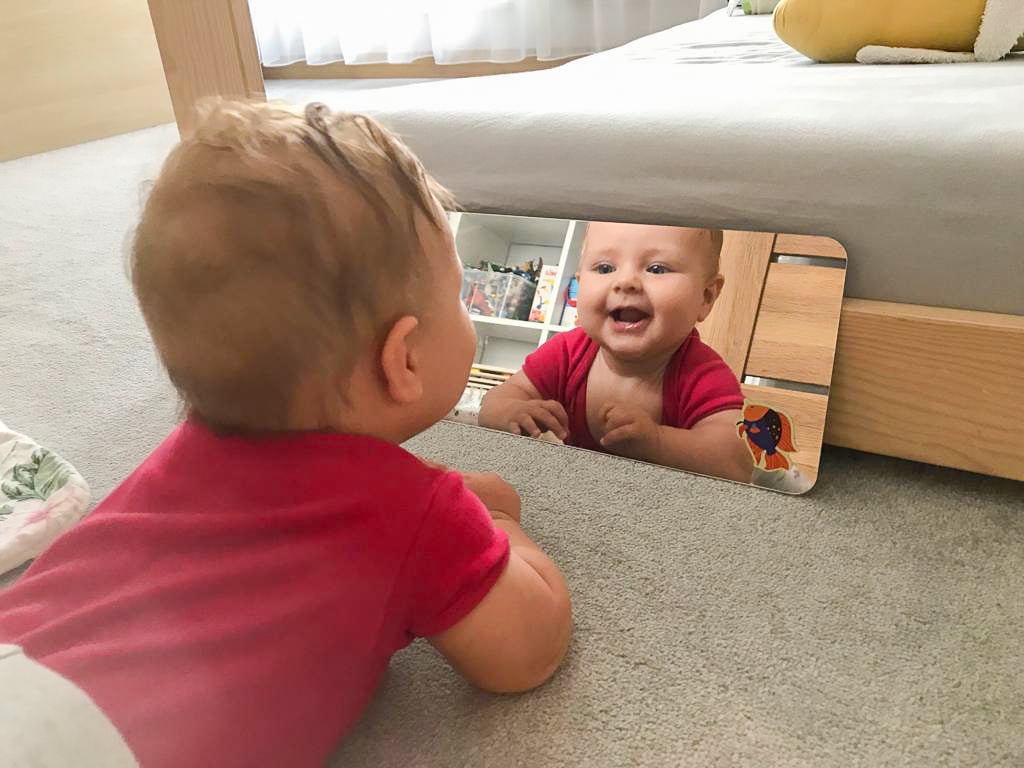
Self-confidence and self-awareness in toddlers
As they grow, through watching how the people around them behave your toddler will begin to understand what to do (or what is expected) in different social situations, for example, they may wave goodbye and say please and thank-you. Allowing your child autonomy and choice around how to greet family members or friends is important, for example, they may prefer to smile from a distance, rather than give a hug to a relative. By allowing your child to make decisions about how to behave in these social situations you are giving them the understanding that they have choice around interaction, their body and touch.
It is also helpful to provide opportunities for choices during routines and play. For example, holding up two options to play with and asking, “Would you like teddy or ball?” and then continuing to verbalise this choice by saying, “You have chosen teddy.” This can be extended to food and drinks, such as “Water or milk?” Using objects to support this, especially with younger children, is key, as it provides a visual prompt and context to your words and can support their understanding of the question. This affirms to your child that their opinions matter and gives them a sense of having agency over what happens to them and around them, from an early age.
Self-awareness helps children to be reflective and think about their actions and behaviour, as well as to step back and consider what others in their environment are experiencing. As they develop, your child will watch others and copy what they are doing, developing language and cognitive skills will support them further as they will engage in co-operative play with other children. Co-operative play involves negotiation, and adjustment through taking on board others’ points of view and feelings in order to keep the momentum of the play going or to move towards a common goal or purpose.
Offering your child, the opportunity to meet with other children of different ages and engage in free play can support these developing skills. When conflicts arise, it can be tempting to jump in and sort them out, but sometimes stepping back and allowing a little more time might support your child to find a resolution themselves.
Toddlers might also begin to develop their own set of interests and be confident to express these to adults and their peers. It is helpful to encourage these interests and to engage in them, sometimes your child may become the ‘expert’ around a subject and know more about it than you! This helps support their growing sense of unique identity and self.
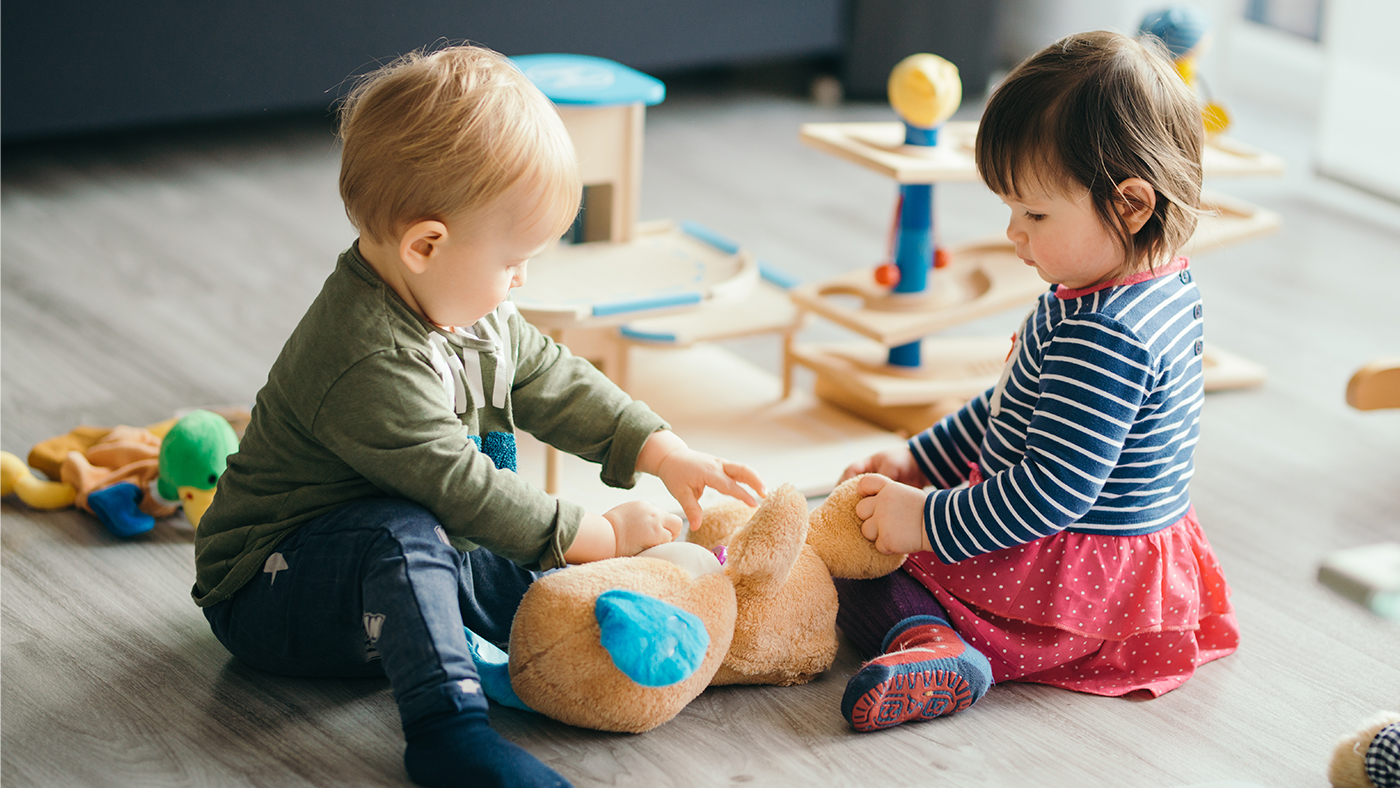
Self-confidence and self-awareness in children
As your child grows their ‘emotional literacy’ develops further. It’s helpful to check in with your child about their emotions. Sometimes as adults we find it difficult to encounter the ‘big emotions’ our child is expressing, such as anger, sadness or fear. This may lead us to attempt to shut these feelings down or distract our child by diverting attention to a different topic. This may result in our child feeling discouraged from showing their full range of emotions such as sadness, anger, or discomfort. If possible, allowing your child to sit with those emotions for a little longer can be helpful and by labelling the emotion and empathising you allow your child to realise that others share these feelings too. For example, you might say, “I think you might be feeling worried, I feel worried too when I go somewhere new.”
Giving your child the opportunity to identify those emotions can help them advocate for themselves and articulate their feelings when they’re hurt, sad or frightened in the future, as well as to develop empathy and recognise similar emotions in other children and adults when their actions are making others uncomfortable. If a child is really sad, it’s not uncommon for us to tell them, ‘Don’t cry, it’s not that bad,’ or we try to distract them very quickly, so they don’t focus on the sadness. But expressing a certain amount of sadness or anger is important for mental health.
Older children will often begin to develop more of a sense of responsibility. They may want to help a younger child cross the street by holding their hand, or to help with household tasks, such as washing up or helping to prepare food. This should be actively encouraged, and tasks like this could be made accessible where possible. An example of this could be sitting together at a child-height table to cut up fruit or vegetables when preparing snacks and meals. They may need some support to do this, or support in understanding how to cope when things don’t quite go right. For example, you might help them to clean up spills from when they don’t quite manage to get milk into the bowl.
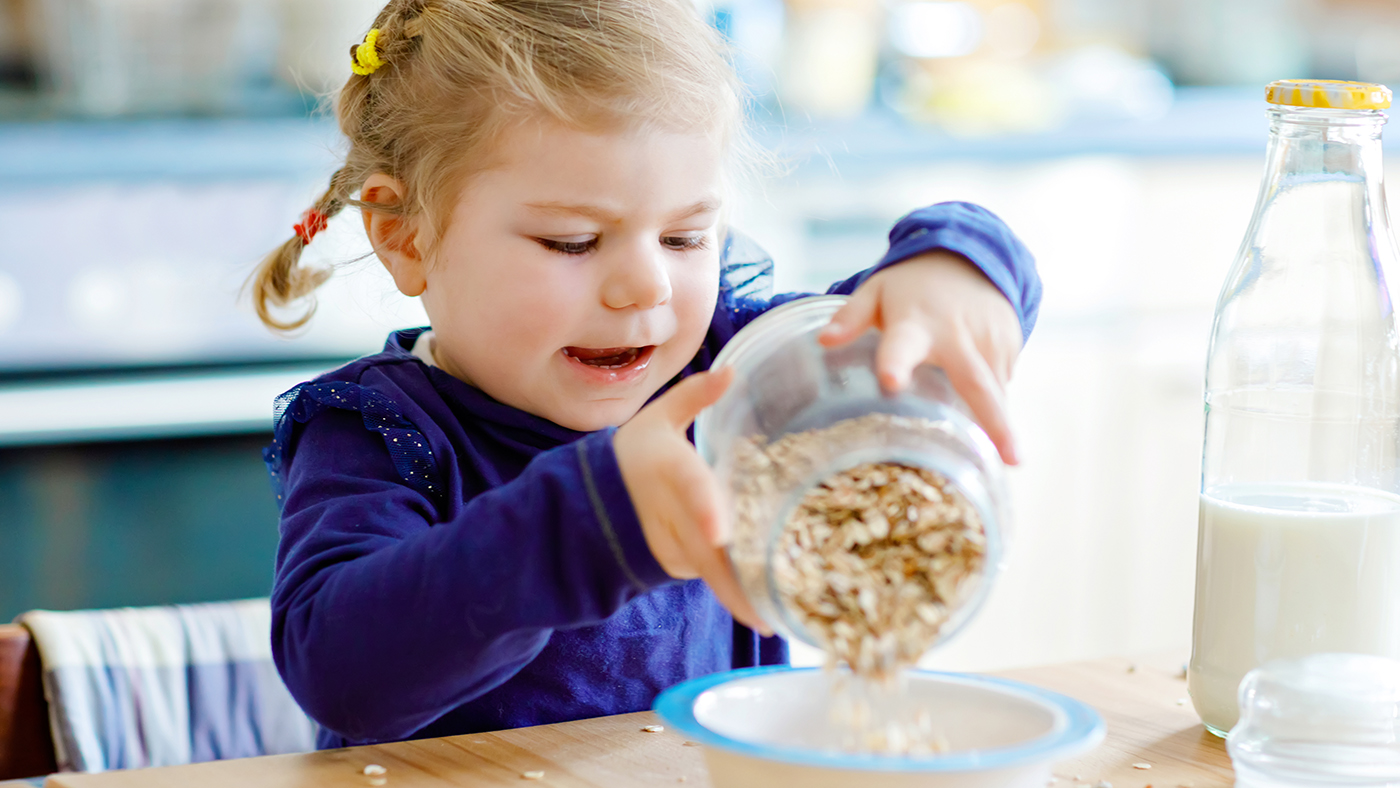
You may notice your child using self-instruction as they carry out tasks, such as “First, I’ll do this, next I’ll do that.” This shows they can identify what they must do in order to complete a task successfully.
The development of personal, social and emotional skills will continue as children reach school age. Through strong foundations children will be confident to try new ideas and activities, and this confidence should be celebrated with them. Children will still want to share their achievements with their parents and familiar adults. It is also important to consider how language is used to celebrate achievements with children at this age, for instance, “Wow, I can see that you have been working hard on your counting,” could be more effective than “You are so clever." The former celebrates their hard work over their natural abilities, and will continue to encourage them to keep on trying when learning new things and understanding concepts that they may find difficult.
At My First Five Years, we know babies and young children learn through play and interaction, we also know that children learn at different rates. In our app, we break down the steps of social and emotional development, to help you to notice progress so you can celebrate as your child masters skills.
